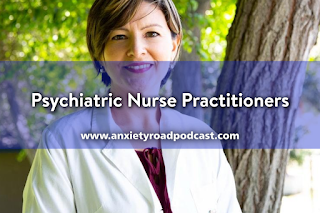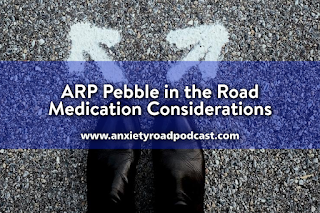Generalized Anxiety Disorder is a pesky bugger.
It is worry on steroids. You worry about money; you worry about every ache or pain and worry about things in the past and the future.
There is nothing that you don't worry about, in excess.
And the amount of worrying you are doing can impacting your life.
Or keep you from doing things you want to do because of the fear of the unknown is going to happen.
If you need support contact the National Suicide Prevention Lifeline at 988 or 1-800-273-8255, the Trevor Project at 1-866-488-7386 or text “START” to 741-741.
Resources Mentioned:
Generalized Anxiety Disorder: When Worry Gets Out of Control, a 12-page booklet that contains information about the condition from the National Institute of Mental Health.From the ADAA.org site, a personal story, GAD Hard to Recognize by Meredith Arthur
Links to other sites are provided for information purposes only and do not constitute endorsements.
Always seek the advice of a qualified health provider with questions you may have regarding a medical or mental health disorder.
This blog and podcast is intended for informational and educational purposes only. Nothing in this program is intended to be a substitute for professional psychological, psychiatric or medical advice, diagnosis, or treatment.
The American Psychological Association has a podcast on mental health topics. Episode 173 Speaking of Psychology: What is anxiety and how can we treat it effectively? With Bunmi Olatunji, PhD
Disclaimer:
Links to other sites are provided for information purposes only and do not constitute endorsements.
Always seek the advice of a qualified health provider with questions you may have regarding a medical or mental health disorder.
This blog and podcast is intended for informational and educational purposes only. Nothing in this program is intended to be a substitute for professional psychological, psychiatric or medical advice, diagnosis, or treatment.










